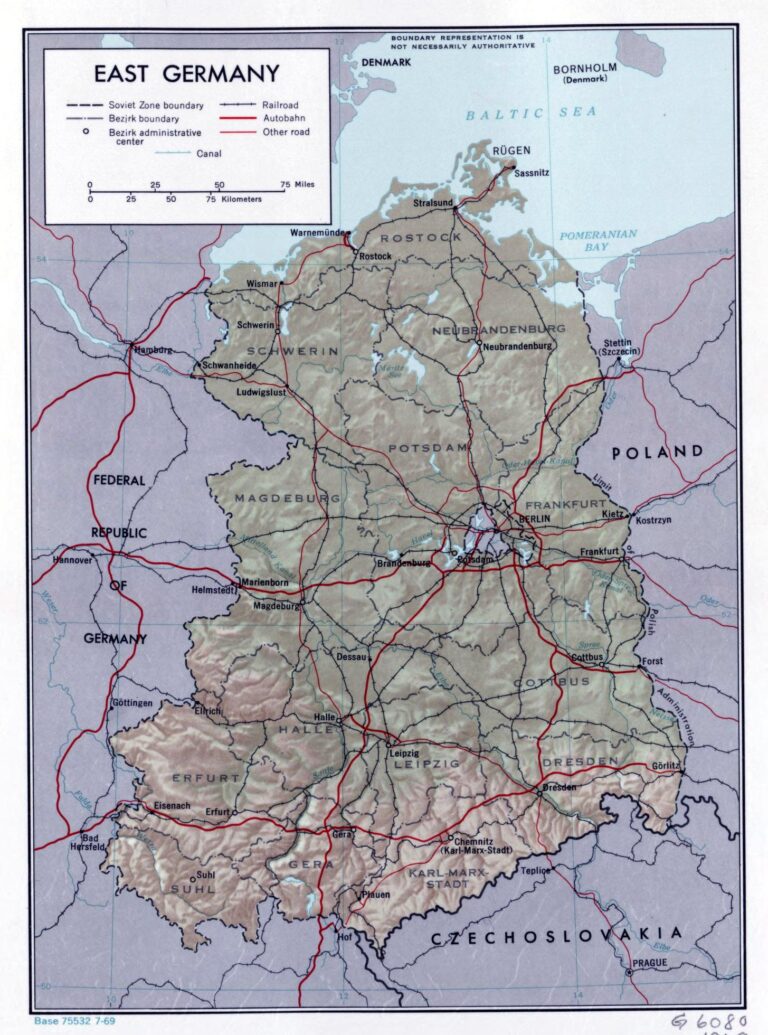Several cities in former East Germany are taking bold steps to counter ongoing population decline by offering free accommodation to new residents. In a bid to revitalize shrinking communities and attract young families and professionals, municipalities are providing incentives such as rent-free housing and subsidies. This innovative approach aims to reverse decades of demographic challenges that have left many towns struggling with aging populations and economic stagnation. As these initiatives gain attention, experts are closely watching their potential to serve as models for other regions facing similar issues.
East German Cities Launch Free Accommodation Initiatives to Attract New Residents
Several cities in eastern Germany have launched bold initiatives offering free accommodation to entice new residents amidst ongoing population decline. The programs, designed to rejuvenate local communities and bolster economic activity, provide newcomers with rent-free housing for a fixed period, typically ranging from six months to one year. Local authorities hope this approach will attract young families, remote workers, and entrepreneurs seeking affordable living options away from the country’s larger metropolitan areas.
The strategies adopted vary by city but generally include additional support such as relocation bonuses, integration services, and access to coworking spaces. Key destinations participating in these initiatives are listed below:
- Görlitz: Offers free stays in renovated historic apartments plus community events tailored to newcomers.
- Plauen: Provides relocation grants alongside free housing for creative professionals.
- Magdeburg: Features family-friendly programs including subsidized childcare combined with accommodation offers.
- Jena: Supports tech startups by pairing housing deals with networking opportunities.
| City | Accommodation Period | Additional Benefits |
|---|---|---|
| Görlitz | 6 months | Community Events |
| Plauen | 1 year | Relocation Grants |
| Magdeburg | 8 months | Subsidized Childcare |
| Jena | 6 months | Startup Networking |
Analyzing the Impact of Housing Incentives on Local Economies and Population Trends
The initiative by several East German cities to offer free stays aims to counteract the persistent trend of depopulation that has challenged the region’s economic vitality for decades. These housing incentives, often combined with subsidized rents and renovation grants, seek to attract young families and remote workers by making relocation more financially feasible. Early reports indicate that such policies contribute not only to stabilizing local populations but also to invigorating consumer spending and small business growth in otherwise declining urban areas. Key benefits observed include:
- Increased demand for local services and retail businesses
- Revitalization of neglected neighborhoods through habitation
- Improved demographic balance, reversing aging population trends
- Enhanced interest from investors and new startups
However, the long-term sustainability of these incentives remains under scrutiny. Municipalities face the challenge of balancing short-term population boosts with the infrastructural and social services capacity. The following table outlines preliminary socioeconomic impacts from select East German cities implementing free stay offers over a 12-month period:
| City | Population Change (%) | New Business Openings | Housing Vacancy Rate (%) |
|---|---|---|---|
| Gera | +3.2 | 15 | 8.5 |
| Cottbus | +2.7 | 12 | 10.1 |
| Jena | +4.1 | 22 | 7.2 |
Experts Recommend Combining Free Stays with Job Creation to Sustain Regional Growth
Urban development experts emphasize that while offering enticing free stays can attract newcomers, the long-term vitality of East German cities depends largely on sustainable employment opportunities. Providing short-term housing incentives is a powerful tool to spark initial interest, but without robust job creation initiatives, these measures risk being temporary fixes rather than catalysts for lasting growth. Municipal leaders are therefore increasingly focused on weaving economic development programs into these schemes, ensuring that new residents find meaningful work and a stable future that encourages them to stay.
Successful regional strategies combine attractive living conditions with targeted investments in sectors such as technology, manufacturing, and green energy. Experts highlight several key factors essential for this integrated approach:
- Partnerships with local businesses: Creating apprenticeship and internship opportunities that feed into permanent jobs.
- Support for startups and innovation hubs: Encouraging entrepreneurship to diversify the economic base.
- Infrastructure improvements: Enhancing transport links and digital connectivity to make cities more accessible and competitive.
| City | Free Stay Duration | New Jobs Created (2023) | Primary Growth Sector |
|---|---|---|---|
| Cottbus | 3 months | 150 | Renewable Energy |
| Görlitz | 6 weeks | 90 | Tech Startups |
| Plauen | 2 months | 120 | Manufacturing |
Closing Remarks
As East German cities continue to grapple with declining populations, innovative initiatives like offering free stays aim to revitalize these communities by attracting new residents and fostering economic growth. While the long-term success of such programs remains to be seen, they represent a proactive effort to address one of the region’s most persistent challenges. Observers will be watching closely to see if these incentives can reverse demographic trends and breathe new life into East Germany’s urban centers.




